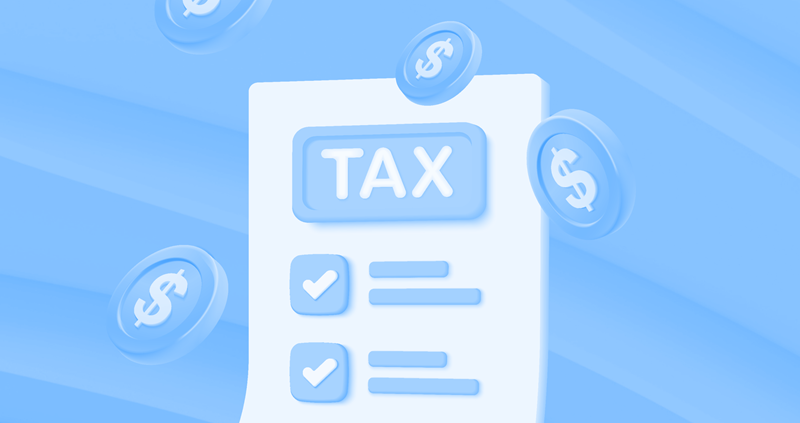When is the tax return deadline in the U.S.?
Know your tax deadlines to avoid penalties. The 2026 Tax Day is Wednesday, April 15, 2026, with extensions available until October 15, 2026. Business tax deadlines vary, and missing the deadline can result in fines and interest. Here's what you need to know:
Tax Return Deadline: April 15, 2026
Business Tax Deadlines: March 15, 2026 for partnerships/S corps; April 15, 2026 for C corps.
Filing Extensions: Available for six months but do not extend the payment deadline.

Nearly all U.S. citizens and permanent residents must file a tax return. If you fail to file your taxes before the tax return deadline, you may be required to pay a penalty. Putting the U.S. tax deadline on your calendar can prevent you from making a costly mistake.
While there is an official Tax Day in the United States, the deadline may be more flexible than you think. In this guide, we’ll share the official and extended tax return deadlines for 2025 income (tax year 2025). Continue reading to learn when to file, how to extend the deadline, and how to avoid fines this year.
When is the tax return deadline in 2026?
Tax Day, or the tax return deadline for filing 2025 federal income-tax returns, is Wednesday, April 15th, 2026. Your federal income tax returns will be due on this day. The IRA typically opens e-filing in late January, but you can prepare your returns earlier through authorized e-filing partners.
As a general rule, Tax Day always falls on April 15th. The only exception is if that date falls on a weekend or holiday. One such example is Emancipation Day, which is celebrated in Washington, D.C., and typically falls on April 16th. In such cases, the due date will fall on the next business day (usually April 17th).
For 2026, no holiday conflict exists, so the due date remains April 15.
Be aware that your federal tax return does not need to be physically in the hands of the IRS by Tax Day. The requirement is that your tax return be postmarked and deposited in the mail or e-filed by April 15, 2026.
With that said, waiting until the last minute is typically not recommended. It may result in a fine if you fail to account for post office hours, sufficient postage, or other issues that may arise.
When is the business tax return deadline in 2026?
The corporate tax return deadline works a little differently. Deadlines can vary based on the type of entity, as not all businesses operate on a calendar year.
Taxes for partnerships and S Corporations are typically due on March 15th. Alternately, they will be due on the first business day following a weekend or holiday. Taxes for C Corporations are typically due on Tax Day, which is April 15th.
What if your business’s fiscal year ends on a date other than December 31st? In such cases, the tax return is due on the 15th day of the fourth month following the end of your fiscal year.
Is there an extended tax return deadline for 2026?
Yes. Individual taxpayers can easily request a six-month extension on their federal income taxes by submitting Form 4868 by April 15, 2026. After filing, your deadline will automatically be extended to October 15, 2026. If you have a complicated tax situation, this additional time can often help ensure you receive the correct refund.
How do I request an extension on my taxes?
There are three ways to request a six-month filing extension:
1. Use an online payment option to pay what you owe and select that you are filing an extension.
2. Use IRS Free File to electronically request an extension.
3. File Form 4868 (“Application for Automatic Extension of Time to File U.S. Individual Income Tax Return") with the IRS. You can do this by mail, with an IRS e-filing partner, or through a tax professional.
However, be aware that this is only a filing extension. You will not receive an extension on your payment deadline. If you fail to pay owed taxes by your original deadline, you may owe penalties or interest.
What if I need a filing extension for another reason?
In the case of a national disaster, you may be entitled to an automatic filing extension. In such cases, you may also be granted an extension to your payment deadline. If you have faced a disaster, check the IRS disaster relief page for state-specific extension and payment relief.
U.S. citizens or resident aliens living outside the United States may also be entitled to an extension. The extension is automatic and gives you two additional months to file. This accounts for the additional time necessary to mail the appropriate paperwork from overseas. However, your payment deadline will not change.
How do I request an extension to file my corporate taxes?
Businesses that require more time to file may also request an extension.
Partnerships and S Corps can obtain a six-month extension, moving the deadline to September 15th. They must file Form 7004 with the IRS. This form is the “Application for Automatic Extension of Time to File Certain Business Income Tax, Information, and Other Returns.”
C Corps can file the same form to receive an extension on their tax return deadline. The six-month extension makes the deadline October 15th.
What happens if I miss the tax return deadline?
The consequences for missing the tax return deadline depend on whether or not you owe taxes or are owed a refund.
If you owe taxes, you may face the following consequences:
- A penalty equal to 5% of the unpaid taxes per month, up to 25%.
- Interest rates equivalent to the federal short-term rate plus 3%.
- An additional failure-to-pay penalty equal to 0.5% of unpaid taxes per month. If you receive a notice, the penalty increases to 1% per month. It will be capped at 25%.
Tax professionals will typically advise filing and paying as soon as possible. If you wait too long, the IRS may rescind the option to set up a payment plan. That can add additional financial burden for some taxpayers.
Furthermore, if you file for and miss the extended deadline, you may face steeper penalties.
If you have a valid reason for failing to file, the IRS may waive the above penalties. However, you must provide evidence of your hardship, such as medical paperwork.
If you are due a refund, expect the following:
- No penalty for late filing.
- If you fail to file for a period of three years, the IRS will consider your refund forfeit, and you will not receive it.
As a rule, the longer you wait to file, the longer your tax refund will take.
Master your taxes with Raisin
Learn more about taxes and how taxation works with Raisin's Tax Guides.
The above article is intended to provide generalized financial information designed to educate a broad segment of the public; it does not give personalized tax, investment, legal, or other business and professional advice. Before taking any action, you should always seek the assistance of a professional who knows your particular situation for advice on taxes, your investments, the law, or any other business and professional matters that affect you and/or your business.


